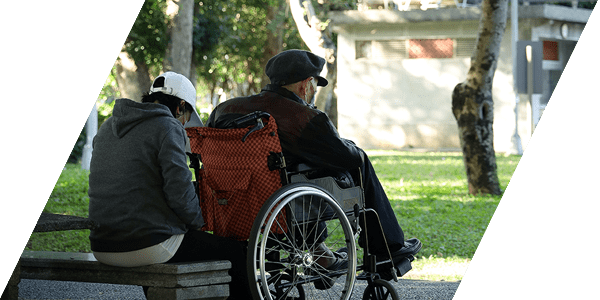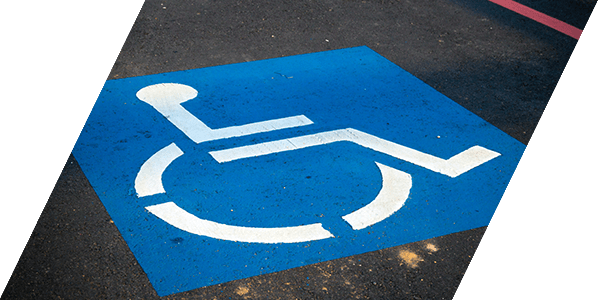Driving Assessment
There are a number of reasons people need a driving assessment:
- 1) To determine driving capability following recovery from physical injury or illness, for example, a stroke, hip replacement, or limb amputation.
- 2) To determine driving capability when returning to the road after a lengthy absence
- 3) Regular assessments to monitor driving capability as one gets older
- 4) To determine what, if any, vehicle modifications are necessary to facilitate driving capability and improve comfort and safety following recovery from physical injury or illness, including a stroke, hip replacement, or limb amputation.
Booking an assessment
Many people are referred to a Mobility Centre by their doctor, or by the DVLA if they are issued a Provisional Disability Assessment Licence, but you don’t need a referral in order to book an assessment.
Contact your nearest Mobility Centre for more info on booking an assessment. Often, it’s as simple as downloading and returning an online application form.
What does the assessment include?
There are several parts to a driving assessment:
Part one: Pre-drive session
This is about information gathering and includes questions about your driving history (be honest about any accidental collisions and tickets), your licence history (be honest about any suspensions or voluntary absences), and medical history. As many people are referred to a Mobility Centre for medical reasons, it’s essential that you are completely honest about all conditions that will impact your driving ability.
Some centres conduct this session over the telephone and some prefer to conduct the interview at the centre.
The order of the following parts may vary from centre to centre, so in no particular order:
Part two: Eye test
The eye test is not comprehensive. It’s only designed to determine the ‘road-worthiness’ of your vision. For example, can you read a number plate from 20m away. It’s a good idea to see your optician before the driving assessment so you are already aware of certain limitations; for example, poor night vision which requires night driving glasses to reduce glare.
Part three: Cognitive test
This includes psychometric tests to determine cognitive skills that impact driving ability, for example, relevant memory and attention skills.
Part four: Physical assessment
It’s very important to get an accurate assessment of your exact physical capability and limitations not only to determine if you are fit enough to drive but also to determine what vehicle adaptations are necessary to compensate for your limitations.
This assessment also tests your reaction time to normal road conditions and certain emergency conditions, including an emergency stop.
Part five: The drive
There is no substitute for real life, so the next-to-last step sees you driving on a public road. All centres comply with COVID safety regulations; appropriate PPE is worn at all times.
The road test is not designed to unduly challenge of flummox you. Centres usually have a selection of cars (manual, automatic, selected adaptions) to suit your needs and all cars are dual controlled for safety. The route includes roundabouts, high streets, and carriageways – but not motorways. The assessor will provide clear and timely instructions, giving you plenty of time to process and react to directions.
It’s important to remember that this is an assessment and not a test, as such. Provided you can prove yourself a capable, competent, and safe driver, you won’t be penalised for the odd bad habit or driving style.
The drive lasts approximately 40 to 50 minutes.
Part six: Feedback
Here you will get feedback on your performance on all parts of the assessment, as well as advice. You can also ask questions about any part of the assessment.
The entire assessment lasts about three hours.
Note: The assessor may stop the assessment after a particular part to recommend a particular course of action before the assessment is resumed. For example, if some doubt arises during the eye test, the assessor may suggest you go to your optician for a full test before you come back to complete the other tasks.




